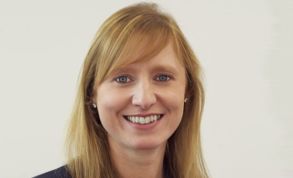News / GPs call for more funding to underpin system success
 A survey and report by the NHS Confederation and Primary Care Federation Network said that only 12% of primary care leaders were always involved in ICS discussions.
A survey and report by the NHS Confederation and Primary Care Federation Network said that only 12% of primary care leaders were always involved in ICS discussions.
The survey, of more than 200 primary care network (PCN) and GP federation leaders, said they needed more funding to allow them to dedicate time to system leadership.
One in five said they did not have enough time to engage with their local system alongside their primary care role. GPs warned this week of the growing clinical demand they face.
The survey highlighted financial unknowns, including uncertainty over primary care funding after 2024. Primary care leaders also feared placing commissioning at ICS level risked taking decisions too far from local communities, and added to GPs’ apprehension over future funding.
Strong primary care representation on the ICS NHS board is needed to ensure funding is not shifted from primary to secondary care to address short-term issues, the report added. Primary care funding should be ring-fenced beyond the current five-year allocation, and greater detail was needed on the potential decisions that could be devolved to place level.
Primary care leaders also warned that existing schemes, such as the Quality and Outcomes Framework and the Investment and Impact Fund – an incentive scheme for PCNs – must be adapted and made more flexible to help focus on the priorities of reducing health inequalities and reflecting the needs of individual communities.
Leaders added that the support for primary care clinicians to link with the wider NHS, which is largely provided through clinical commissioning groups, must not be lost when the new system model is established.
The funds could be transferred into primary care budgets, devolved to GP federations that are supporting PCNs, or directed into PCN development funding, the report said.
The funding given to PCN clinical directors during the Covid pandemic significantly aided collaboration on the vaccine programme, demonstrating the worth of such allocations, the report said.
Ruth Rankine (pictured), director of primary care at the NHS Confederation, said: ‘Primary care is the front door of the NHS and carries out 90% of contact with patients, so it is imperative that it has full representation on ICS boards to ensure local communities are offered the best care and services.’
Engagement with primary care leaders remained patchy, she added. ‘There is a real desire from primary care leaders to have a meaningful role. However, we need to recognise the context within which they are working and the challenges on their time. They must be given the support they need if the health and care sector is serious about system working, collaboration and focusing on local need.’
The Royal College of General Practitioners (RCGP) said GPs were facing increasing demand pressure and had provided a record number of patient consultations in the last four weeks – almost 13 million – while general practices had also delivered 75% of Covid vaccinations.
RCGP chair Martin Marshall said the college’s figures showed around half of the consultations were face to face.
‘GPs and their teams have been working under unsustainable pressures for many years now and we need to make the job of a GP manageable and fulfilling again so that we keep hardworking and dedicated GPs where they want to be – caring for patients. This is why we need to see urgent action to address the workload and workforce pressures facing general practice,’ he said.
Related content
We are excited to bring you a fun packed Eastern Branch Conference in 2025 over three days.
Mindset and the neuroscience of leadership - Lunch and Learn